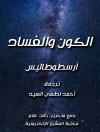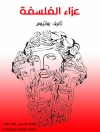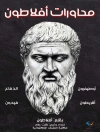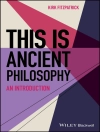In the anthology *Arguments of Celsus, Porphyry, and the Emperor Julian, Against the Christians*, readers are thrust into the fervent ideological debates of the ancient world, rich with the clashing perspectives that defined early Christian and pagan dialogues. This collection serves as an intellectual tapestry showcasing a range of literary styles from rigorous rhetorical treatises to impassioned polemics, reflecting the heated exchanges of the time. Each piece stands out as a testament to the literary context of philosophical and religious discourse, with no single author overshadowing the other, yet collectively presenting a formidable counter-narrative to Christian ascendency. The included authors, each a luminary in their right, were pivotal figures who challenge the burgeoning Christian doctrine from diverse philosophical and cultural vantage points. They are united in this anthology by their critical examination of Christianity’s claims, drawing on historical context and cultural critique. From Tacitus’s well-documented historical skepticism to Josephus’s finely balanced work between Roman and Jewish lines, and Julian’s imperial insights, the collected works provide poignant commentaries that are indispensable for understanding the complexities of early inter-religious discourse. For scholars and enthusiasts of early theological and philosophical debates, this anthology is an indispensable compendium that delves deeply into ancient critiques of Christianity. It grants a rare glimpse into the myriad perspectives that contested religious orthodoxy, providing educational value and broadening the reader’s historical insight. This collection fosters a rich dialogue between the authors, inviting readers to ponder the evolution of religious and philosophical thought through meticulously curated writings. Its diverse representations make it essential reading for those seeking comprehensive insights into antiquity’s most pivotal ideological contests.
लेखक के बारे में
Cornelius Tacitus, an eminent figure in the annals of Roman historiography, is not traditionally known for the title ‘Arguments of Celsus, Porphyry, and the Emperor Julian, Against the Christians.’ His corpus does not encompass works with such specific theological critique. Tacitus, born circa A.D. 56-57, was a senator, a consul, and a governor of the province of Asia, revealing an illustrious political career complemented by his literary achievements. His masterpieces include ‘Annals’ and ‘Histories, ‘ covering the history of the Roman Empire from the death of Augustus to the end of the Flavian dynasty, and the ethnographic work ‘Germania’ which provides insights into the tribes of Germania. Tacitus is renowned for his concise, penetrating style, and was a sophisticated observer of the political and social dynamics of the Roman Empire. His clear and sometimes cynical prose offers modern readers a provocative interpretation of the power struggles and the moral decay he perceived during the Imperium Romarum. Considered one of the greatest historians of antiquity, Tacitus’s insights offer a window not only into the events of his time but also into the complex psychology of its actors. However, ‘Arguments of Celsus, Porphyry, and the Emperor Julian, Against the Christians’ suggests a work focused on critiquing Christianity, which aligns more closely with the writings of later pagan philosophers and critics, rather than the historical accounts Tacitus is known for.












